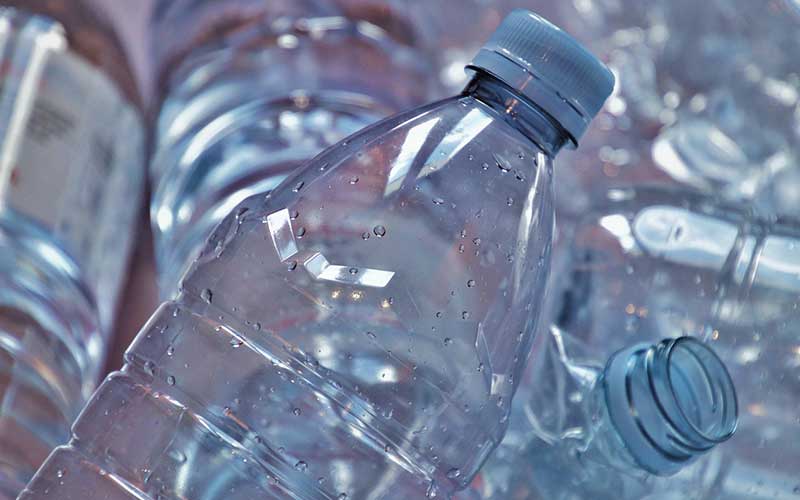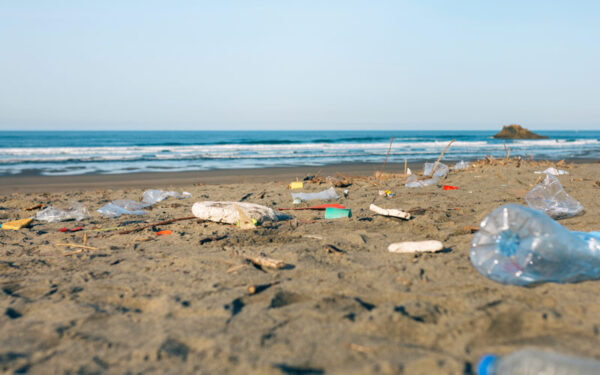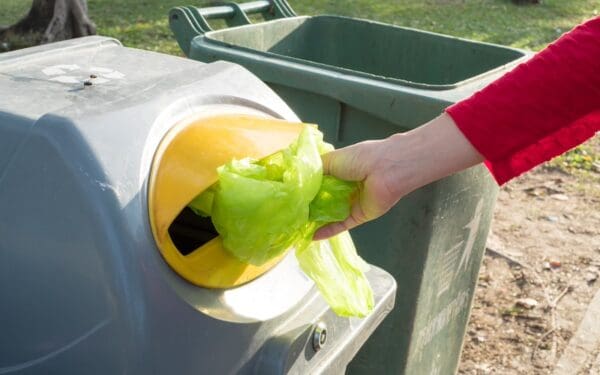
Connecticut leads the region in bringing its bottle return program fully back online, ensuring that single-use beverage containers are recycled instead of incinerated or landfilled. Photo: Pixabay
At the outset of the COVID-19 pandemic, staffing concerns caused many New England states with bottle return programs to temporarily stop enforcing collection requirements at grocery stores, supermarkets, and liquor shops. While many independent redemption centers remained open throughout the public health crisis, the pause on retail collection sites, like grocery stores, made it difficult for customers to return their empty beverage containers. What’s more, even though retail collection rooms weren’t fully functioning, patrons still had to pay 5-cent deposits on their beverage purchases.
Connecticut was among the states pressing pause on bottle bill enforcement in mid-March so that grocery stores and supermarkets could focus on cleaning and stocking shelves. But as of May 20, the state’s Department of Energy and Environmental Protection (DEEP) has reinstated bottle collection requirements at these retail sites.
We’re glad to see Connecticut lead the region in bringing its bottle return program fully back online. Our world has been forever altered by this pandemic, and we need to be vigilant in protecting public health. Ensuring single-use plastic bottles can be recycled, rather than incinerated or buried in a landfill, is a critical part of the equation.
Bottle Bill Enforcement Suspended for Staffing, Not Safety
In the early days of the pandemic, it made sense for Connecticut DEEP to temporarily suspend bottle collection requirements at grocery stores and supermarkets. It allowed store staff to concentrate on stocking shelves and protecting themselves and customers from infection.
But during the hiatus, certain parties spread misinformation, claiming that the bottle return program was suspended due to risk of coronavirus transmission.
This claim was false. As the Connecticut Department of Health has explained, risk of virus transmission from bottle collection is low. Bottle bill opponents nonetheless ignored the facts and heartlessly exploited the pandemic to weaken public trust in redemption programs. This callous strategy mirrored attempts by the plastic industry to roll back plastic bans and by the waste industry to landfill recyclables and delay food waste bans New England-wide.
Bottle Return Programs Help Protect Public Health
Now, more than ever, Connecticut’s bottle return program is vital for protecting residents from the dangers of waste incineration. Every year, Connecticut burns about 2.3 million tons of trash – including more than 275,000 tons of plastic – in aging incinerators. Burning plastic releases dangerous pollutants such as mercury, lead, dioxins, furans, sulfur dioxides, and volatile organic compounds. These emissions endanger frontline communities in cities like Hartford and Bridgeport, where incinerators burn a significant portion of Connecticut’s waste – up to 1.55 million tons per year.
Like many frontline communities and communities of color throughout the country, Hartford and Bridgeport have been harder hit by COVID-19 than most other Connecticut cities. And one of the principle reasons is the dirty, polluted air that they are forced to breathe every day.
By keeping plastic out of incinerators, Connecticut’s bottle return program plays a small, but important role in improving air quality in these frontline neighborhoods.
CLF Continues to Fight for Connecticut’s Bottle Bill
In the face of misinformation campaigns, CLF continues to push for the protection and improvement of Connecticut’s bottle return program. Prior to the pandemic, we urged the Connecticut general assembly to update the bottle bill by increasing the deposit from 5 to 10 cents, raising the handling fees that fund the redemption system, and expanding the program to cover all beverage containers.
These improvements could divert tens of thousands of tons of containers from incinerators each year, including more than 17,500 tons of plastic bottles. Upgrading the bottle bill would thereby help the program do even more to protect the respiratory health of our communities.
Given the strains that the pandemic has placed on state governments, the Connecticut legislature may not vote on wide-sweeping reforms to the bottle bill this year. Nonetheless, we continue to work alongside our partners in advocating for a modernized bottle return program. Now, more than ever, bottle bill reform can play a key role in protecting public health, supporting green jobs, and saving money for cities and towns.
By all indications, COVID-19 will continue to pose a public health threat and financial emergency for months to come. Connecticut is making the right call by ensuring that its bottle return program remains operational. And now, at CLF’s urging, Massachusetts is also resuming enforcement of its bottle collection requirements. Hopefully, Vermont and Maine will not be too far behind.
When we do finally emerge from the COVID-19 crisis, fully functioning bottle redemption programs will be critical in moving us towards safe recycling and reuse systems that protect our communities and their budgets.




